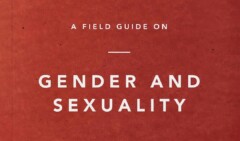Some time ago I read an article (which, alas, I can no longer find) that described a time that a crew from the BBC went in search of the Loch Ness Monster. I thought of this yesterday while watching the movie The Water Horse with the kids. The corporation hired a team of experts to sweep Loch Ness from end to end, back and forth for several days using some of the world’s most sophisticated sonar equipment. After a complete, thorough search they concluded that there is no evidence to indicate that a monster lives in the Loch. I doubt any of them were surprised.
Being thorough folks, the crew decided to push a little further and to try to describe how it is that the myth of the Loch Ness Monster persists despite a complete lack of hard evidence to support her (his?) existence. To do this, they performed a devious little experiment. They rigged up a system which allowed them to raise an object from under the water far out into the Loch. They would then interview the inevitable crowd of tourists standing by the shore to ask them what they had seen. They elected to use a section of fencing as the decoy, deliberately choosing an object that looks absolutely nothing like an ancient aquatic creature. They waited until a busload of tourists had arrived on the shores of the Loch; once the bus was unloaded they raised the fence a few feet out of the water. There was great excitement on the shore and sure enough, when they interviewed people after the fact, the majority of them described seeing something that looked just like the traditional depiction of the Loch Ness Monster–long neck, rounded head, and so on.
The people who led this study concluded that this was a type of pareidolia. According to the Skeptics Dictionary, pareidolia is “a type of illusion or misperception involving a vague or obscure stimulus being perceived as something clear and distinct.” Other examples of this phenomenon are the stuff of the “weird news” pages–seeing the face of Mother Teresa in a cinnamon bun, the face of a man on the moon or the shape of an animal in the clouds. In the case of the people gathered at Loch Ness, they saw something vague and yet were able to describe it in detail. The detail was fabricated by their minds based on what they already imagined the Loch Ness Monster to look like. They were fooled by their own minds which superimposed what they wanted to see over what they truly did see.
Certainly the people who saw a section of fence being raised from the water did not expect to see a fence–they expected to see a monster. Many of them had traveled from across the country or across the world for the very purpose of visiting Loch Ness. Everybody who stands on the shores of the Loch hopes to catch a glimpse of Nessie, even if most are skeptical about her existence. So when this object came up from the water their minds allowed them to see what they wanted to see. Had they been expecting to see a school bus emerging from the water I have little doubt that their minds would have allowed them to believe that is what rose from the depths.
What we see in this rather extreme example is the value of objectivity. Had the people visiting Loch Ness been objective they would have seen nothing but a section of wet fencing material. They would have seen the reality in all its simplicity. They would have guarded against allowing their minds to play tricks on them.
This story, silly though it may be, made me ask myself how often I approach the Bible with the wrong attitude. How often do I approach it with my own agenda in mind? Homosexuals approach the Bible determined to find proof that their lifestyle is not only acceptable but condoned by Scripture. So when they read that John was the apostle that Jesus loved, they see support for their lifestyle. When they read about the deep love between Jonathan and David they project their own homosexuality on these men and allow this to give license to their own immorality. Often people on both sides of various debates misuse Scripture in this way. When it comes to the issue of women in positions of leadership within the local church, proponents of both sides have been known to eschew objectivity, approaching the Scriptures determined to prove their point. When we approach the Bible determined to prove what we already believe we will more often than not find enough proof to satisfy ourselves, even if we are taking passages far beyond their real meaning. We’ll see that section of fencing and know that it’s Nessie.
The lesson to me is that I need to approach the Bible humbly, as objectively as I can, always asking God to reveal His truth to me through His Word. I need to lay aside my presuppositions and biases so, if necessary, I can allow God to change and shape and mold me. I have to be utterly dependent on Him. I need to allow the Spirit to show me what a given passage really means, not merely force it into saying what I want it to say. Yes, the story of Elijah and the “still small voice” has much to teach me, but I cannot use it as proof that God will speak to me in silent prayer. Sure, God has a place for visionaries in the church, but I can’t use Proverbs 29:18 to prove this. And yes, Jesus Christ is present where two or more are gathered in His name, but I have no right to tear this from its context and its grounding in the local assembly. There are so many ways in which Christians push their own agenda on Scripture.
John Calvin once warned against treating the Bible like a ball that we bounce around at will. The Bible is the very Word of God and its teachings can only be rightly learned by impartial and objective study of the text. And that means being impartial and objective even about the parts we may not like, for often God’s ways are at odds with our far-too-human agendas. We rely on the Spirit not just to teach us the meaning of Scripture, but to protect us from our own arrogance and our own inability to interpret it wisely and properly. We have no right and no ability to approach Scripture without expressing our dependence on Him.










